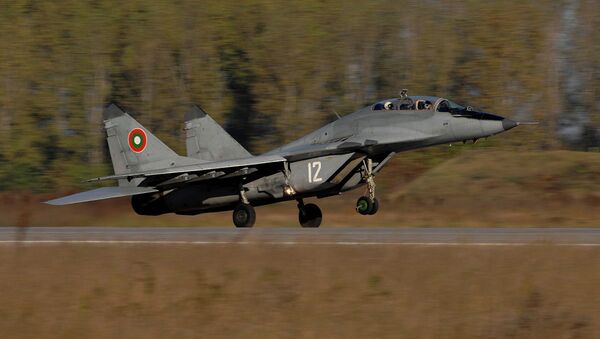The Air Force plans to scrap its five 1950s-designed MiG-21s by the end of 2015, but it remains unclear what the country will do with its 12 MiG-29 air superiority fighters, a more recent design, dating back to the mid-1980s.
Air Force Commander Major General Rumen Radev clarified that the Air Force would be looking to have several of the MiG-29 fleet's planes revamped without costing the Ministry of Defense any additional funds, with the Institute of Defense creating a program to extend the aircraft lifespan.
But it remains unclear what the country plans to do to extend the fighters' engines, which will reach the exhaustion of their technical usability by mid-2016. Commenting that Bulgaria has yet to reach an agreement with Russian engine manufactures, Nenchev noted that the Air Force may receive the necessary technical assistance for servicing the MiGs from Poland, which may offer (presumably used) engines at half the cost. Poland had initially acquired 12 MiG-29 aircraft in the 1980s, and 32 more from the Czech Republic and Germany after 1990. Polish experts are expected to arrive later this month to carry out negotiations with the Air Force.
Among the used Western aircraft being eyed by the Defense Ministry are American F-16s, Western European Eurofighters and Swedish Gripens. "All of this does not mean that we will see new planes by next year. The pace of progress in this project depends on what we will do with the MiG-29," Nenchev noted.
The Bulgarian economy has faced stagnating growth rates over the past five years following the economic crisis of 2008-2009. A report by UNICEF from earlier this month revealed that nearly 28 percent of Bulgarians between 19-24 are not economically active. The country's economic recovery has been further hampered by EU sanctions and Russian countersanctions over the crisis in Ukraine, and by Bulgaria's decision to reject participating in the South Stream pipeline project, which would have given the country $600 million in annual transit fees, as well as favorable rates on the supply of natural gas.



